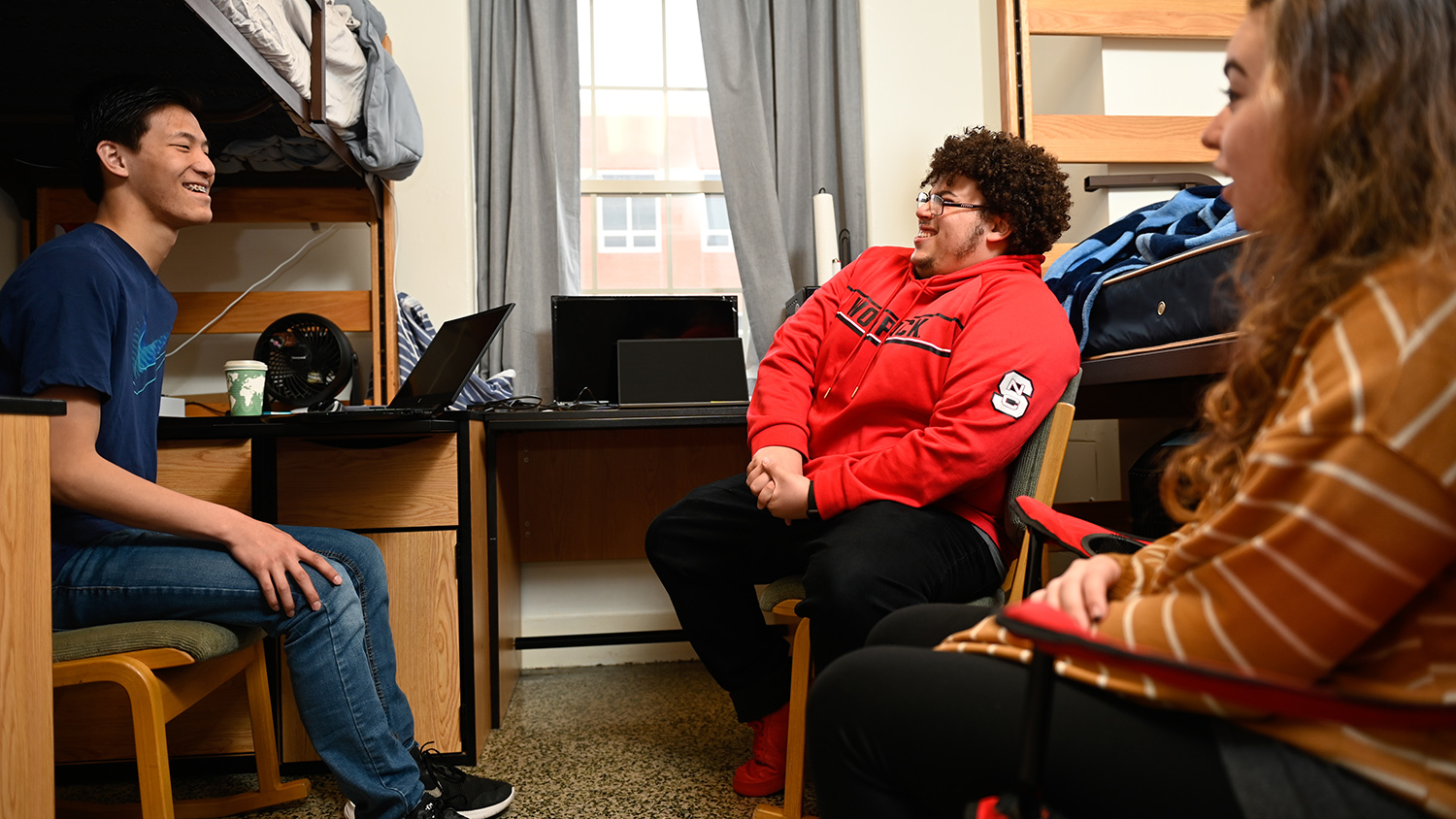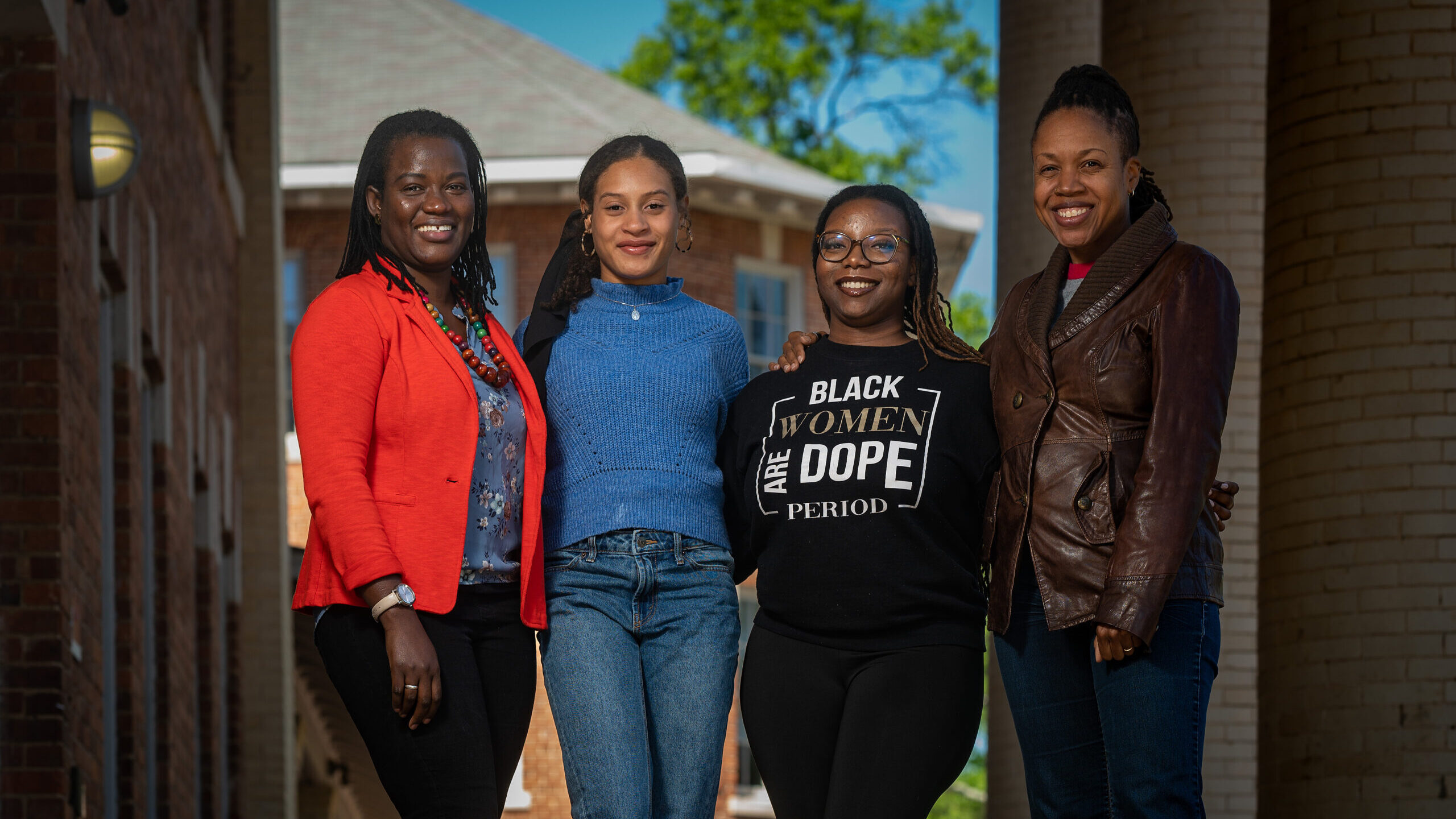Teaching Teachers Half A World Away
Collaborative Program Helps Azerbaijani Teachers Improve Their English Fluency
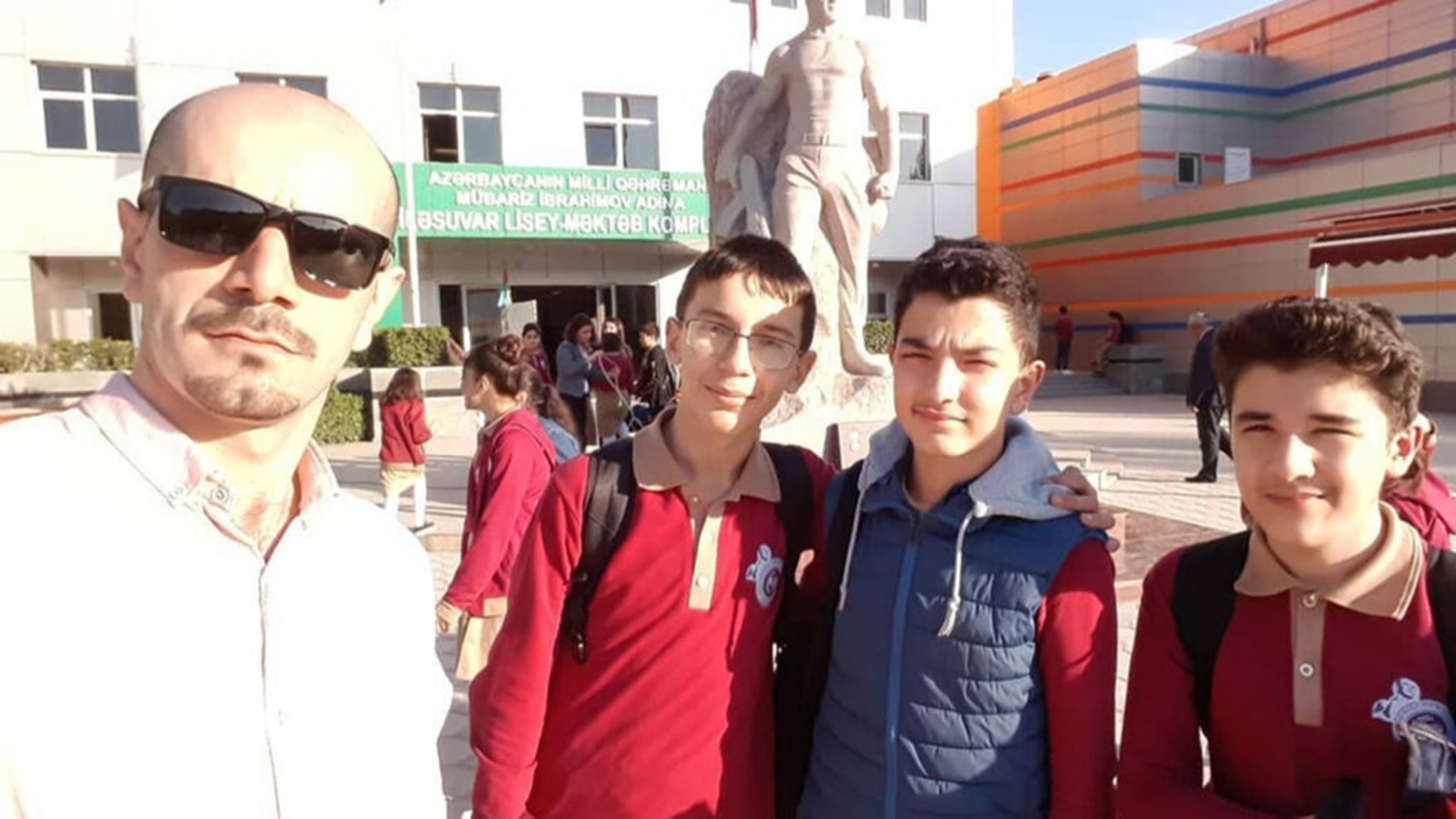
NC State graduate student Amanda Baker never met anyone from Azerbaijan before last month, but she now regularly logs into bi-weekly Zoom sessions with around 100 Azerbaijanis.
Baker, a student in the Master of International Studies program, is working with the Global Training Initiative (GTI) on a new online professional development program for English as a Foreign Language (EFL) teachers in Azerbaijan to improve their English fluency and teaching effectiveness.
She’s been a North Carolina public school teacher for 12 years and has found some kindred spirits on the other side of the world despite the 9-hour time difference and 6,000-mile distance.
“We teachers are all alike,” Baker joked. “Many of us have very similar personality traits no matter what part of the world we come from. We also all face very similar issues in education such as lack of funding, resources, low salaries and so on.”
Baker has been assisting Professor Jillian Haeseler, the program’s academic director, who provides a two-hour lecture on EFL methodology each week and coordinates with two seasoned ESL/EFL co-instructors, Paula Wilder and Lynn Berschneider, who facilitate the follow-up small group discussions. Haeseler, the director of NC State’s English as a Second Language program in the Department of Foreign Languages and Literatures, is encouraged by how these teachers are tackling the challenges of lesson planning in English instead of their native language.
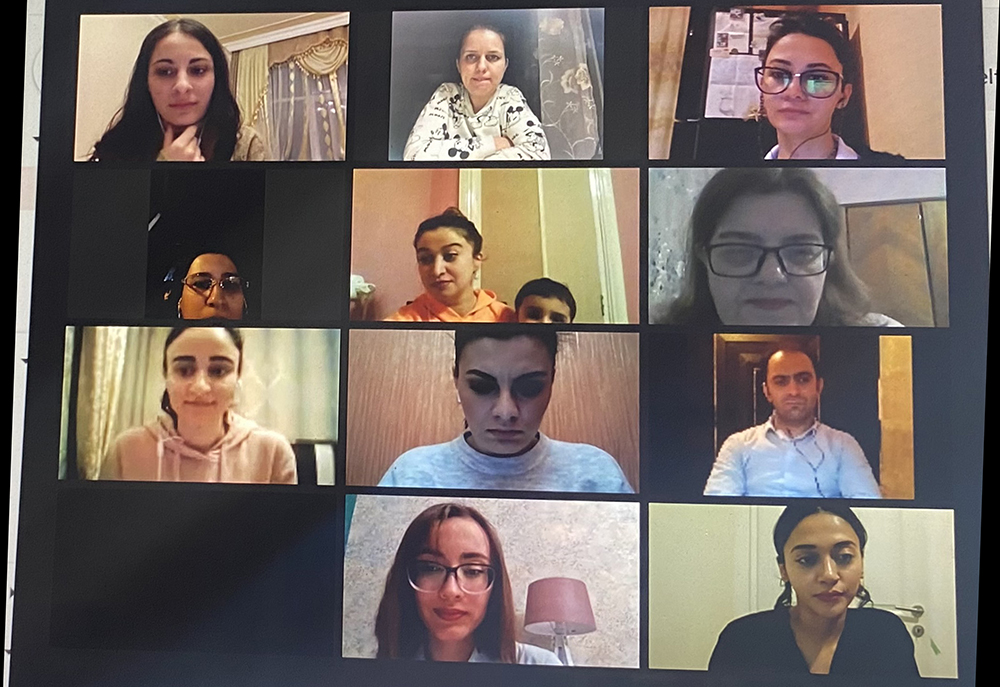
“They are taking the course very seriously, and their efforts to carry out the various pedagogical tasks in English are admirable,” Haeseler said. “It thrills me to witness how the teachers are applying the ideas and research-based strategies to their instruction.”
The first part of the training is 14 weeks of synchronous presentations and small group discussion sessions, as well as asynchronous activities such as reading assignments and posting in the Moodle discussion forum. The program helps the Azerbaijani participants become more effective, reflective teachers by applying learning and language acquisition theories and best classroom practices to their lesson planning and delivery. The program is funded by the U.S. Department of State and is provided free of cost to participants who agreed to commit at least 10 hours each week to complete the coursework. The interest and need for such a training program became apparent as GTI received more than 360 applications. Ultimately, 115 teachers were selected for the program.
Professional Development
The participants log into the synchronous sessions during their evening hours, typically after they’ve already completed their teaching for the day. For example, Orkhan Jafarov lives in the Azerbaijani capital of Baku and teaches at both public and private schools in Bilasuvar, which is about 110 miles away.
“Sometimes being tired after the school lessons and traveling to Bilasuvar then back to Baku creates some hardships for participating in online lessons,” he said. “But in the end, I will get valuable experience and knowledge that will help change my life.”
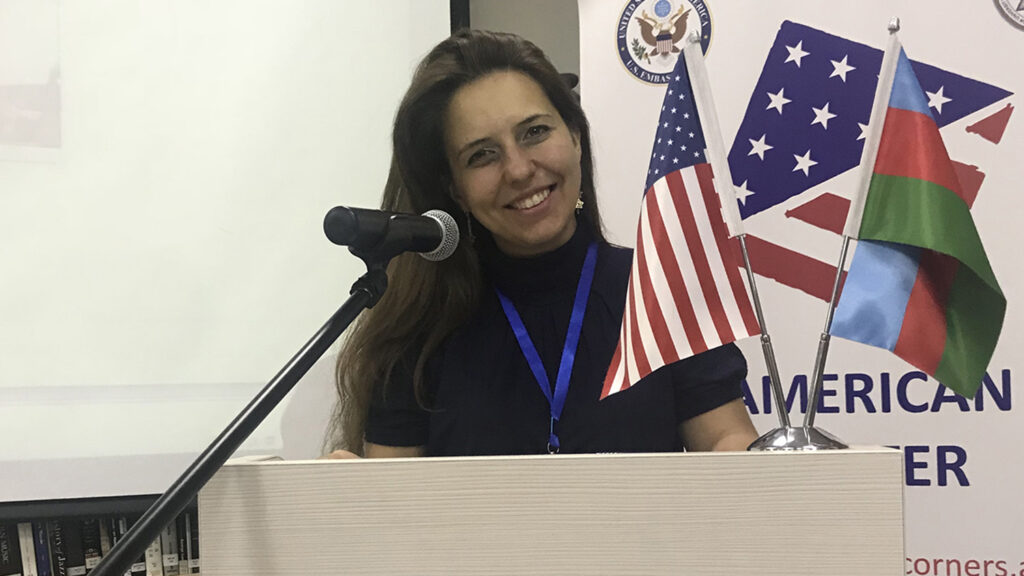
Kamilla Kravchenko was excited to be chosen for the program; she’s been actively seeking opportunities to learn from educators in the U.S. Kravchenko teaches at Baku European Lyceum where she works with students ranging from 6-18 years old.
“I have already applied to several Fulbright teaching programs,” she explained. “I wish to be a model for my students, so I really want to be taught, to learn every single day of my life.”
Building Networks
After the online portion of the program concludes in April, NC State plans to send instructors to Azerbaijan to conduct intensive training and coaching sessions for a smaller cohort of participants in the summer— if international travel has been deemed safe again. The aim is to equip these teachers with the knowledge and skills to replicate and expand the curriculum to other teachers throughout the country.
“I hope there will be other opportunities for the Global Training Initiative and the ESL Programs at NC State to work together to further develop and foster symbiotic relationships with institutions around the world,” Haeseler added.
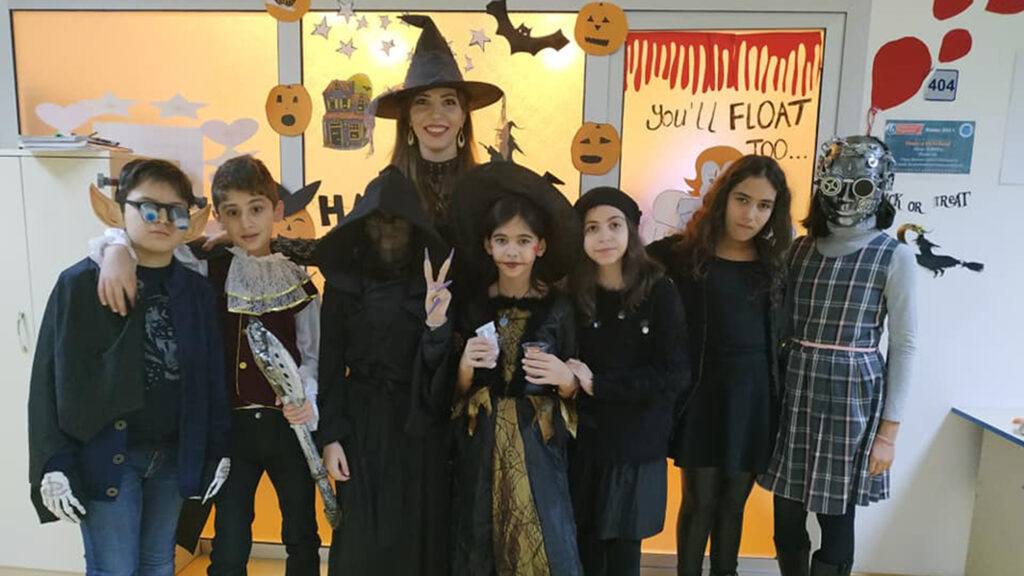
The opportunity for professional development and networking with other ESL/EFL teachers in her country attracted Narmin Najafova to the training program. Even though she’s currently on maternity leave with twins, she wanted to make sure she didn’t miss this opportunity.
“I have learned that working with motivated co-workers and native English-speaking facilitators provides the most rewarding experiences and the best opportunity for self-improvement from a professional perspective,” she said. “I am the luckiest participant to enroll in this course.”
Baker also hopes this program will create a network of professional support for teachers in Azerbaijan, especially those in rural and underprivileged areas. She’s enjoyed building personal relationships with the participants and watching them encourage each other.
“I want them to walk away with a feeling of accomplishment,” she said.
This article was first published by Ilin Misaras in the Office of Global Engagement.
- Categories:
